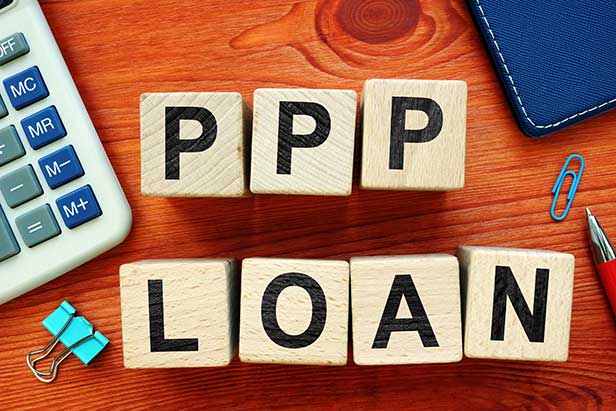News December 22, 2020
Aid Package Has $284 Billion in New PPP Loans
Congress was expected to approve the new stimulus package on Monday, Dec. 21. The bill also establishes tax reliefs for businesses.
UPDATE TUESDAY, DEC. 22, 7:30 AM EST
Late on Monday, Dec., 21, the United States Congress officially passed legislation that provides $900 billion in coronavirus relief and $1.4 trillion to fund the government through Sept. 30. The legislation includes $284 billion in Paycheck Protection Program loans, $600 direct payments to each adult and $600 for each dependent, and many other measures.
After months of squabbling and failing to reach a deal, Congress has passed a $900 billion coronavirus relief package that will include $284 billion in Paycheck Protection (PPP) loans for small businesses and other measures aimed at buttressing business.

Word of more relief will be welcomed in the promotional products industry, where companies applied for – and received – PPP loans during the first round of disbursements earlier this year as industry sales plummeted 44.4% year over year in the second quarter and nearly 25% in the third quarter due to the coronavirus-affected economy.
The forthcoming aid also comes amid a surge in COVID-19 infections, hospitalizations and deaths that have sparked new restrictions in many states, a reality that’s led to renewed rises in unemployment claims and fears in promo that the tepid recovery the industry experienced in part of Q3 and the Q4 holiday season could be paused.
Agreed to on Sunday, Dec. 20 and approved on Monday, Dec. 21, Congress’ $900 billion relief bill earmarks $325 billion for small businesses, a tally that includes $284 billion for first- and second-time forgivable PPP loans. There’s also $20 billion set aside for Economic Injury Disaster Loans.
BREAKING: As the American people continue battling the coronavirus this holiday season, they will not be on their own.
— Leader McConnell (@senatemajldr) December 20, 2020
Congress has just reached an agreement. We will pass another rescue package ASAP. More help is on the way.
This #COVIDrelief will provide emergency aid to Americans.
— Chuck Schumer (@SenSchumer) December 21, 2020
But anyone who thinks this is enough does not know what’s going on in America and has not looked into the eyes of a small business owner, a restaurant owner losing their business.
We must do more under President Biden.
In another important development for small businesses in promo and beyond, the bill will establish that businesses that receive PPP loans will be able to make tax deductions for expenses covered by forgiven loans. The Wall Street Journal reported that the deduction measures will save American businesses approximately $200 billion.
It’s not the only tax relief: The new aid package would continue a tax credit for businesses that maintain employees on their payrolls. Deductions for business meals are part of the bill too, as is a temporary extension of tax breaks related to renewable energy.
Other business-specific elements of the new stimulus bill include: $12 billion for small lenders that focus on minority and low-income communities; $15 billion for airlines to use in covering salaries and benefits through the end of March, a move that could lead to the rehire of tens of thousands of people who lost their jobs; and $14 billion for ailing public transit systems.
Additionally, the aid package would put up $166 billion that would be used to send $600 direct payments to each American adult, as well as $600 for each dependent. Folks with gross incomes over $75,000 and married couples making over $150,000 would receive less, with payments phasing out the higher the income level goes.
The WSJ reported that “mixed-status households, where some people are ineligible noncitizens, would get payments based on the number of eligible people in the households, as opposed to being shut out as they were in the first round.”
The aid deal would also pump another $300 per week into support received by Americans on unemployment, another move aimed at keeping households above water and consumer spending moving.
There’s also money for combating COVID-19. That includes $22 billion to states for testing, tracing and COVID-19 mitigation efforts, as well as funds for vaccine distribution, among other measures.
CNBC reported that House Speaker Nancy Pelosi of California and Senate Minority Leader Chuck Schumer of New York called the new stimulus deal a “package that delivers urgently needed funds to save the lives and livelihoods of the American people as the virus accelerates.”
The pair also indicated that the plan was insufficient, and that more relief spending could be coming once President-elect Joe Biden is sworn in as the nation’s 46th president on Jan. 20.
“The American people have a great deal to celebrate in this legislation,” Schumer said. “But of course, the agreement we reached is far from perfect.”
